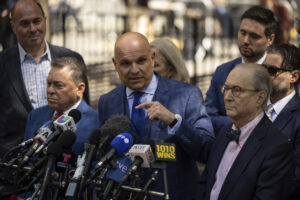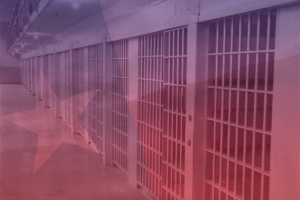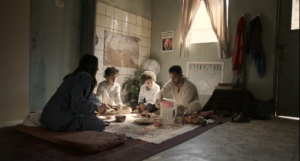Marie Cocco: New Year, Same War
Despite the drubbing Republicans took at the polls last year, Bush has given no indication that he intends to change course in Iraq this year.WASHINGTON — The new year begins, as always, with a sense that something has ended — perhaps happily, perhaps with relief — and something new has begun. The usual markers point the way: abandoned evergreens at curbside, the return of school buses to the streets, the slog back toward the office cubicle.
The personal markers give a certain comfort. They are so unlike the proliferation of public markers that point not with clarity to some resolution of old conflicts, but toward a confused year ahead that perhaps will be more bitter than the one just passed.
The execution of Saddam Hussein is a fitting premonition, as it was a wholly unsatisfying symbol of the United States’ misadventure in Iraq. There is no way the hanging could be said to symbolize the end of a dark era and the dawn of some new epoch of democratic justice. The video, darkly medieval in its trappings and complete with spectators shouting taunts, reminds us that the U.S. toppling of a brutal dictator it once wholeheartedly supported has left Iraq awash in blood, and alienated much of the rest of the world. It has left our country politically distressed and our military limping.
If Saddam’s execution is insufficient as a graphic reminder of our blunders, perhaps other markers will do: The United States now has lost more than 3,000 military men and women to this conflict. December, with 113 deaths, was the worst month for military casualties in 2006.
Any hopeful uplift the public might have felt after the November elections that placed Democrats in charge of Capitol Hill — a rebuke to President Bush’s war policy — has dissipated in the face of presidential obstinacy. The president’s view of Iraq simply hasn’t changed with the facts on the ground. In his official New Year’s message, Bush said, “We will remain on the offensive against the enemies of freedom,” implying once again that offensive military action holds the answer to the insurgency that has been transformed into civil war. Bush continues to expect the conflict to be resolved with either victory or defeat, and pledges to defeat the enemy “without wavering.”
As for Saddam’s execution, the president called it yet another “milestone” for Iraq. Bush has used this word to describe the 2003 formation of an interim governing council for Iraq; the first Iraqi parliamentary elections, in 2005; the approval of a constitution later that year; the selection of a new prime minister in 2006, and so on.
The milestone in our own political response to Iraq was supposed to have been the ascension to power this week of congressional Democrats. But Bush, by most accounts, is poised to promote more of the same — a “surge” in U.S. troop strength of up to 40,000 additional personnel. This “doubling down on a bad hand,” as Lawrence Korb, a Reagan administration Defense Department official, has called it, hasn’t won support even among Republican lawmakers. Still, it may well be the commander in chief’s chosen course.
This, more than anything else, is why the political year begins with more fear than hope. Bush wants no path out of Iraq that he cannot call “victory.” Almost everyone else sees no path to victory and prefers a route leading toward the eventual American withdrawal.
We are poised not for a year of reconciliation but, I fear, another year of contention over Iraq.
It will begin almost immediately, with the president’s expected announcement about the deployment of additional troops, followed by congressional hearings on why this is folly, and followed soon after by a battle over how to fund continued operations in Iraq and Afghanistan. The Bush administration has financed its wars through emergency appropriations outside the regular federal budget, a practice Democrats and even a majority in the Republican-controlled Congress vowed to stop. The White House will face demands, for the first time since 9/11, that it reduce its gargantuan appetite for military spending, and choose what programs to cut in order to finance higher priorities.
Of course, we Americans can be downright delusional at the start of a new year. We love to believe that things will get better, or at least not worse. But the history of our entanglement in Iraq tells us that something worse always seems to lie ahead. Now the political war over this war opens a new front on Capitol Hill. There is no reason to believe there will be a quick or decisive end.
Marie Cocco’s e-mail address is mariecocco(at symbol)washpost.com.
Copyright 2007, Washington Post Writers Group
Your support matters…Independent journalism is under threat and overshadowed by heavily funded mainstream media.
You can help level the playing field. Become a member.
Your tax-deductible contribution keeps us digging beneath the headlines to give you thought-provoking, investigative reporting and analysis that unearths what's really happening- without compromise.
Give today to support our courageous, independent journalists.






You need to be a supporter to comment.
There are currently no responses to this article.
Be the first to respond.